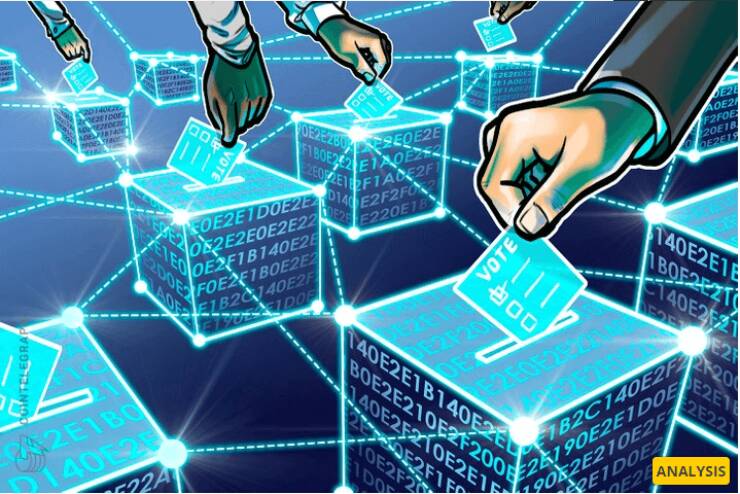In recent years, the integrity of electoral processes has been a subject of intense scrutiny. As digital technology increasingly influences various aspects of our lives, it’s no surprise that it’s also reshaping how we approach elections. Among the technological advancements, blockchain technology stands out as a promising solution to enhance transparency, security, and trust in electoral systems. This article explores how blockchain can transform elections by ensuring transparency and integrity, thereby restoring public confidence in the democratic process.
Understanding Blockchain Technology
Why Blockchain is Relevant to Elections
The relevance of blockchain to elections lies in its ability to provide a secure and transparent method of recording votes. Traditional voting systems, whether paper-based or electronic, are susceptible to various forms of tampering, fraud, and human error. Blockchain technology, however, can address these issues by offering a system that is tamper-resistant, transparent, and verifiable by all stakeholders.
How Blockchain Enhances Election Transparency
Securing the Voting Process
One of the main advantages of blockchain technology in elections is its ability to secure the voting process. Since each vote is recorded as a transaction on the blockchain, it is nearly impossible for malicious actors to alter or delete votes without being detected. This ensures that the outcome of the election accurately reflects the will of the voters, free from external manipulation. You can also explore wealth catalyst ai for further information.
Ensuring Transparency
Transparency is another critical aspect of fair elections, and blockchain excels in this area. With blockchain, each vote is recorded on a public ledger that can be audited by anyone with access. This means that voters, election officials, and even independent observers can verify that the votes have been counted correctly. This level of transparency can significantly reduce the chances of electoral fraud and increase trust in the electoral process.
Enhancing Voter Confidence
When voters are confident that their votes will be accurately counted and that the election process is transparent, they are more likely to participate in elections. Blockchain technology can enhance voter confidence by providing a clear, unalterable record of each vote. This assurance can lead to higher voter turnout and a more robust democratic process.
Potential Challenges and Solutions
Technical Challenges
While blockchain holds great promise for enhancing transparency in elections, it is not without its challenges. One of the primary technical challenges is the scalability of blockchain networks. Elections involve millions of votes, and the blockchain must be able to handle this volume without slowing down or crashing.
Addressing Scalability
To address scalability concerns, some experts suggest using a hybrid approach that combines blockchain with traditional databases. In this model, the blockchain would handle the most critical parts of the election process, such as recording and verifying votes, while less critical data could be stored on traditional databases. This approach could help balance the need for transparency with the technical limitations of blockchain technology.
Regulatory and Legal Challenges
Another significant challenge is the regulatory and legal framework surrounding the use of blockchain in elections. Many countries have strict regulations regarding how elections are conducted, and integrating a new technology like blockchain would require changes to existing laws and regulations.
Navigating Legal Frameworks
To overcome these challenges, governments and regulatory bodies must work closely with blockchain experts to develop a legal framework that supports the use of blockchain in elections. This framework should address issues such as data privacy, voter anonymity, and the legality of blockchain-based voting systems. By creating a supportive legal environment, countries can more easily adopt blockchain technology in their electoral processes.
Real-World Applications and Success Stories
Estonia's E-Voting System
Estonia is one of the few countries that have successfully integrated blockchain into its voting system. The country’s e-voting system, which has been in use since 2005, relies on blockchain technology to ensure the integrity and transparency of the voting process. Estonia’s success demonstrates that blockchain can be effectively used in national elections, providing a model for other countries to follow.
Other Pilot Projects
Several other countries, including the United States, Switzerland, and South Korea, have conducted pilot projects to test the feasibility of using blockchain in elections. These projects have shown promising results, indicating that blockchain could play a significant role in future elections worldwide.
Conclusion
Blockchain technology has the potential to revolutionize the way elections are conducted by enhancing transparency, security, and voter confidence. While there are challenges to be addressed, the benefits of using blockchain in elections are clear. As more countries explore and adopt this technology, we can expect to see a significant shift towards more transparent and trustworthy electoral processes. The future of democracy may very well depend on how effectively we can integrate blockchain into our voting systems, ensuring that every vote is counted and every voice is heard.


